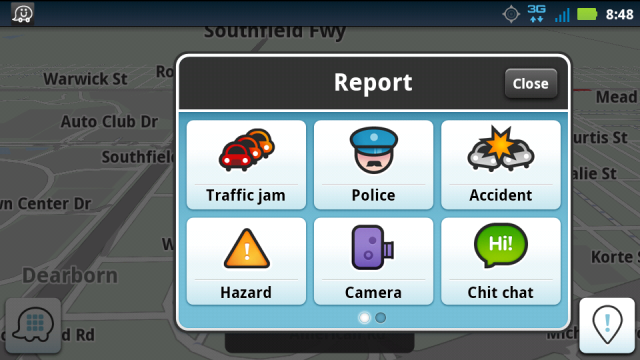Cops: We Can Track You, But You Can't Track Us

Back in December I interviewed a spokesman for the North Dakota Highway Patrol about Waze, a Google-owned app which allows people to report information about road travel. Thinks like traffic accidents, bad weather, and even the location of law enforcement.
Lt. Tom Iverson didn’t like that last feature.
“The people who are creating that app they’re allowing gateways and they’re allowing escape avenues and heads up for those criminals out there. Shame on you for providing them the location of police officers around the state,” he told me.
Now it looks like pushback against Waze is coming from other places than North Dakota. Sheriff Mike Brown of Bedford County, Virginia, serves on the technology committee of the National Sheriffs Association, and he wants Google to pull the feature.
Sheriff Mike Brown of Bedford County, Virginia, said the police-reporting feature, which he called the “police stalker,” presents a danger to law enforcement.
“The police community needs to coordinate an effort to have the owner, Google, act like the responsible corporate citizen they have always been and remove this feature from the application even before any litigation or statutory action,” said Brown, who also serves as the chairman of the National Sheriffs Association technology committee.
There are some serious questions about privacy and freedom of speech here. What Waze/Google are doing is facilitating peer-to-peer communications by private citizens. It would be one thing if Google voluntarily chooses to pull the feature, but removing it because of legislation or threat of litigation from law enforcement?
That’s problematic.
All the more so because law enforcement goes to great lengths to track us. There are the surveillance cameras, and the fact that technology companies routinely share data with law enforcement (Google, in defending Waze, touts the sharing of data from the app with law enforcement).
Heck, right here in North Dakota law enforcement uses license plate scanners which feed into a database which can be used to track the movements of private citizens in a way that’s not at all unlike Waze.
My thought is that Waze brings a little transparency to law enforcement patrols. Cops should just deal with it.




